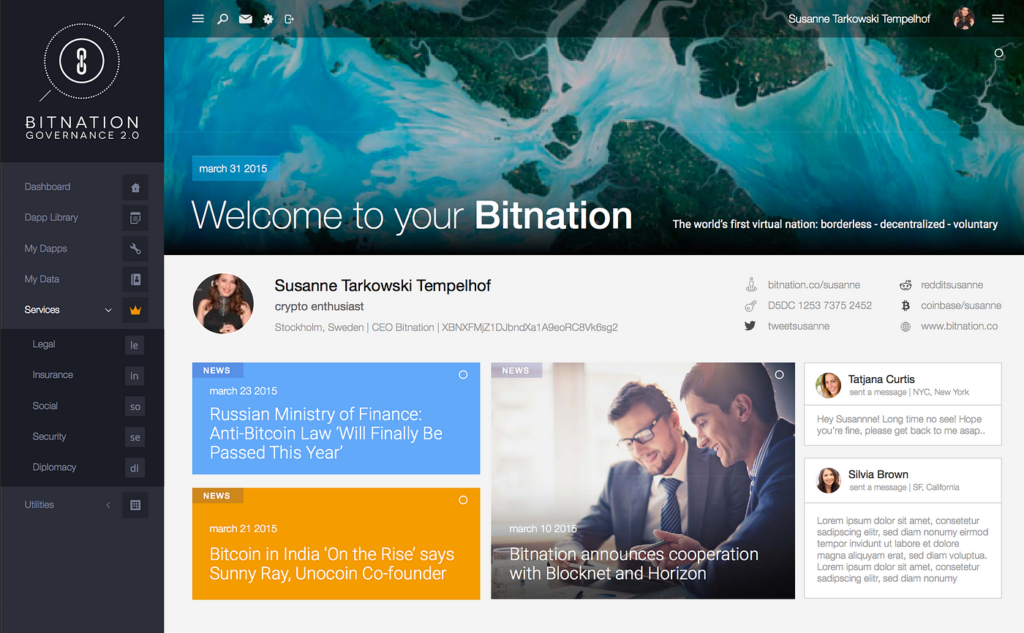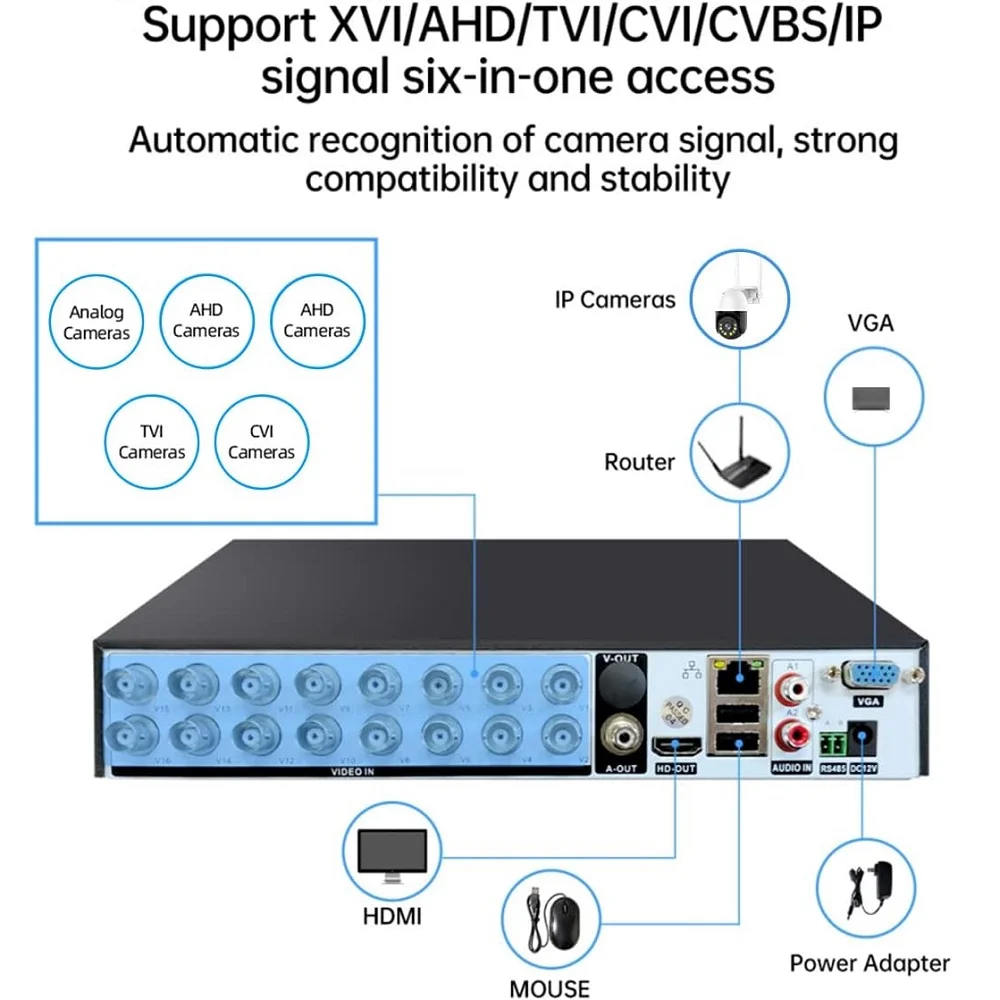Introduction to www.bitnation-blog.com
Definition of Digital Governance
Digital governance refers to the use of digital tools and technologies to enhance the processes of governance. This encompasses the administration of public resources, delivery of public services, and engagement with citizens through digital platforms.
The Importance of Digital Governance
The rise of digital governance is transforming the way governments operate, making them more transparent, efficient, and accessible. It plays a crucial role in modernizing public administration, improving service delivery, and fostering citizen participation.
Overview of www.bitnation-blog.com
www.bitnation-blog.com is a pioneering platform in the field of digital governance, offering innovative solutions for decentralized governance through blockchain technology. It aims to empower individuals and communities by providing tools for self-governance and direct participation in policy-making processes.
Purpose of the Article
This article aims to explore the significance of digital governance, the unique offerings of www.bitnation-blog.com, and the future prospects of this transformative technology. It will provide a comprehensive overview, detailed analysis, and practical insights into how digital governance is shaping the future of public administration.
Evolution of Digital Governance
Early Stages of Digital Governance
The concept of digital governance began to take shape in the late 20th century with the advent of the internet. Early initiatives focused on digitizing governmental processes to improve efficiency and accessibility.
Key Milestones in Digital Governance
Key milestones include the development of e-government services, the implementation of digital identity systems, and the integration of blockchain technology into governance processes. These advancements have paved the way for more transparent, accountable, and participatory governance models.
Current State of Digital Governance
Today, digital governance is characterized by the widespread use of digital tools to facilitate government-citizen interactions, enhance service delivery, and promote transparency. Platforms like www.bitnation-blog.com are at the forefront of this transformation, offering decentralized solutions that challenge traditional governance models.
www.bitnation-blog.com: An Overview
Founding and History
www.bitnation-blog.com was founded with the vision of revolutionizing governance through decentralized technologies. Since its inception, it has grown into a leading platform for digital governance, attracting a diverse community of users and contributors.
Mission and Vision
The mission of www.bitnation-blog.com is to empower individuals and communities by providing tools for decentralized governance. Its vision is to create a world where everyone can participate directly in the decision-making processes that affect their lives.
Key Features and Services
The platform offers a range of features and services, including decentralized governance tools, blockchain integration, smart contracts, and community engagement mechanisms. These tools enable users to create and manage their own governance structures, vote on policies, and collaborate with others.
Target Audience
www.bitnation-blog.com caters to a diverse audience, including individuals, communities, and organizations interested in exploring decentralized governance models. It attracts users who value transparency, participation, and innovation in governance.
Digital Governance Framework
Core Principles of Digital Governance
Digital governance is built on principles of transparency, accountability, participation, and efficiency. These principles guide the design and implementation of digital governance systems, ensuring that they serve the needs of citizens and enhance public trust.
Policies and Regulations
Effective digital governance requires a robust policy framework that addresses issues such as data privacy, security, and ethical use of technology. Regulatory measures must be in place to ensure that digital governance initiatives comply with legal standards and protect the rights of citizens.
Governance Models
Various models of digital governance exist, ranging from centralized e-government systems to decentralized platforms like www.bitnation-blog.com. These models differ in their approach to governance, the technologies they use, and the level of citizen participation they facilitate.
Benefits of Digital Governance
Efficiency and Transparency
Digital governance enhances the efficiency of governmental processes by automating tasks, reducing paperwork, and streamlining service delivery. It also promotes transparency by providing citizens with easy access to information and enabling them to track government activities.
Cost Reduction
By leveraging digital tools, governments can significantly reduce operational costs. This includes savings on administrative expenses, reduced need for physical infrastructure, and lower transaction costs associated with public services.
Improved Public Services
Digital governance improves the quality and accessibility of public services. Citizens can access services online, file applications, make payments, and receive updates in real time, leading to a more responsive and citizen-centric administration.
Citizen Engagement
One of the most significant benefits of digital governance is enhanced citizen engagement. Digital platforms enable citizens to participate in decision-making processes, provide feedback, and collaborate on public policy initiatives, fostering a more inclusive and democratic governance model.
Challenges in Digital Governance
Technological Challenges
Implementing digital governance solutions requires advanced technological infrastructure and expertise. Challenges include integrating legacy systems, ensuring interoperability, and maintaining up-to-date technology.
Security Concerns
Digital governance systems are vulnerable to cyberattacks, data breaches, and other security threats. Ensuring the security and integrity of digital platforms is crucial to maintaining public trust and protecting sensitive information.
Privacy Issues
Digital governance involves the collection and processing of large amounts of personal data. Protecting citizens’ privacy and ensuring compliance with data protection regulations is a significant challenge.
Resistance to Change
Adopting digital governance requires a cultural shift within governmental organizations and among citizens. Resistance to change, lack of digital literacy, and concerns about the reliability of digital systems can hinder the adoption of digital governance initiatives.
www.bitnation-blog.com: Key Offerings
Decentralized Governance
www.bitnation-blog.com offers tools for creating and managing decentralized governance structures. Users can establish their own governance systems, design policies, and implement decision-making processes that are transparent and participatory.
Blockchain Integration
The platform leverages blockchain technology to ensure the security, transparency, and immutability of governance processes. Blockchain provides a decentralized ledger that records all transactions and decisions, preventing fraud and ensuring accountability.
Smart Contracts
Smart contracts are self-executing contracts with the terms of the agreement directly written into code. www.bitnation-blog.com uses smart contracts to automate governance processes, enforce rules, and execute decisions without the need for intermediaries.
Community Engagement Tools
The platform provides a range of tools to facilitate community engagement, including discussion forums, voting systems, and collaborative decision-making platforms. These tools enable users to participate actively in governance processes and contribute to policy development.
Applications of Digital Governance
E-Government Services
Digital governance enables the delivery of a wide range of e-government services, including online applications, digital payments, and electronic document management. These services make government more accessible and convenient for citizens.
Digital Identity Management
Digital identity systems are a cornerstone of digital governance. They provide citizens with secure, verifiable identities that can be used to access public services, vote in elections, and participate in governance processes.
Online Voting Systems

Online voting systems enable secure, transparent, and accessible voting processes. Digital governance platforms like www.bitnation-blog.com offer secure online voting solutions that ensure the integrity and transparency of elections.
Public Policy Development
Digital governance platforms facilitate the development of public policies through collaborative and participatory processes. Citizens can contribute to policy discussions, provide feedback, and participate in decision-making, leading to more inclusive and effective policies.
Case Studies
Successful Implementations of Digital Governance
Several countries and organizations have successfully implemented digital governance initiatives. Examples include Estonia’s e-residency program, India’s Aadhaar digital identity system, and the use of blockchain for land registry in Sweden.
Lessons Learned from Failures
Not all digital governance initiatives have been successful. Failures often result from inadequate planning, lack of stakeholder engagement, and technological challenges. Analyzing these failures provides valuable lessons for future implementations.
Expert Insights
Interviews with Industry Leaders
Leading experts in digital governance share their insights on the current state and future prospects of the field. These interviews provide valuable perspectives on the challenges and opportunities in digital governance.
Predictions for the Future of Digital Governance
Experts predict that digital governance will continue to evolve, driven by advancements in technology and increasing demand for transparent and participatory governance. Key trends include the rise of decentralized governance platforms, increased use of artificial intelligence, and greater emphasis on data privacy.
User Guides and Tutorials
How to Navigate www.bitnation-blog.com
A step-by-step guide on how to use www.bitnation-blog.com, including account setup, navigation, and accessing key features.
Setting Up Digital Identity
Instructions on how to create and manage a digital identity on the platform, including security measures and best practices.
Participating in Digital Governance Activities
A guide on how to get involved in digital governance activities, including voting, policy development, and community engagement.
Comparative Analysis
Comparison with Traditional Governance Models
A detailed comparison of digital governance with traditional governance models, highlighting the benefits and challenges of each approach.
Comparison with Other Digital Governance Platforms
An analysis of www.bitnation-blog.com in comparison with other digital governance platforms, examining features, capabilities, and user experiences.
Future Prospects
Emerging Trends in Digital Governance
Exploration of emerging trends in digital governance, including the use of artificial intelligence, machine learning, and big data analytics.
Potential Developments at www.bitnation-blog.com
Predictions for future developments at www.bitnation-blog.com, including new features, services, and technological advancements.
Community and Citizen Participation
Role of Citizens in Digital Governance
Discussion of the vital role citizens play in digital governance, including their contributions to policy-making and governance processes.
How www.bitnation-blog.com Facilitates Citizen Participation
An overview of the tools and mechanisms www.bitnation-blog.com offers to facilitate active citizen participation in governance.
Technological Specifications
Blockchain Technology Used
Details of the blockchain technology used by www.bitnation-blog.com, including its architecture, security features, and scalability.
Security Measures
An overview of the security measures implemented by the platform to protect users’ data and ensure the integrity of governance processes.
Scalability and Performance
Discussion of the platform’s scalability and performance, including its ability to handle large volumes of transactions and users.
Digital Governance and Sustainability
Environmental Impact
Examination of the environmental impact of digital governance, including the energy consumption of blockchain technology and efforts to reduce carbon footprint.
Sustainable Development Goals
Discussion of how digital governance contributes to the achievement of sustainable development goals, including promoting inclusive and transparent institutions.
Legal and Ethical Considerations
Legal Frameworks for Digital Governance
Overview of the legal frameworks that govern digital governance, including regulations related to data protection, privacy, and digital rights.
Ethical Implications
Discussion of the ethical implications of digital governance, including issues related to surveillance, data ethics, and the digital divide.
FAQs
Common Questions about www.bitnation-blog.com
Answers to common questions about the platform, including its features, services, and how to get started.
Answers to Frequently Asked Questions
Detailed responses to frequently asked questions, providing additional information and clarifications.
Conclusion
Summary of Key Points
A recap of the main points discussed in the article, highlighting the significance of digital governance and the unique offerings of www.bitnation-blog.com.
Call to Action for Further Engagement
Encouragement for readers to explore www.bitnation-blog.com, participate in digital governance activities, and contribute to the future of decentralized governance.





Be First to Comment